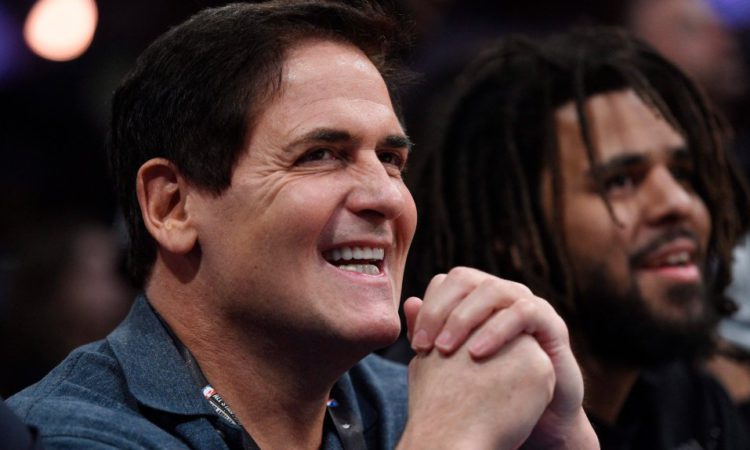Sports betting is big, Texas big.
But the Lone Star State is still among the large group of states without legalized single-game wagering on sports.
Texas bettors are eagerly following an effort that includes their favorite teams to change that reality.
In a Dallas Morning News story, the Sports Betting Alliance said it now has the backing of several Texas pro teams, including the Dallas Cowboys, Texas Rangers, Dallas Mavericks, while the NHL’s Dallas Stars and MLS’ FC Dallas also joined the discussions.
The alliance also includes various betting platforms and told the newspaper its plan is to push for opening Texas to sports betting.
“Unregulated and illegal sports gambling is already taking place in the State of Texas,” Charlotte Jones, the Dallas Cowboys’ executive VP and chief brand officer, told the News, according to a statement released by the Sports Betting Alliance.
“Legalized sports betting would regulate the industry and generate hundreds of millions of dollars of new revenue for the state which will help fund critical programs without raising taxes.”
Backing the Texas Sports Betting Bill
The alliance is targeting legislation soon to be introduced by GOP State Rep. Dan Huberty. A current draft reportedly says bettors could take home 90% of their winnings, with the other 10% directed toward state education.
It’s no easy road. In addition to the bill backed by the Sports Betting Coalition, the Texas Constitution would also need to be amended by a second bill, and voters would have to approve that amendment.
So, two bills need to pass both state houses to be put on the ballot. Those hurdles mean potential roadblocks. However, if everything did pass, state bettors could find access to the action via legal online sportsbooks by next year’s Super Bowl.
According to an ESPN analysis, 25 states have legalized sports betting since 2018. But some of the largest potential markets, including California, Florida and Texas, have so far resisted the push to approve sports betting in any form.
Texas, with its population second only to California’s, is perhaps the imminent crown jewel of potential sports-betting revenue, since California’s hopes for sports gambling appear to be years down the road.
“It could generate several hundred million dollars,” Huberty told the newspaper. “I think it has a good opportunity to pass.
“Why don’t we come out of the dark ages here?”
In 2018, the US Supreme Court threw out the ban on sports gambling outside of Nevada and ruled the issue should be left up to each state. The Sports Betting Alliance has closely followed the progress from other states, especially Tennessee, Michigan and Colorado, that recently legalized the practice.
College Sports to be Included in Texas Sports Betting Proposal
According to details of the draft legislation provided exclusively to the Dallas Morning News, sports betting would be open to anyone age 21 or older, and college sports, according to a spokesperson’s confirmation, would be included.
In Texas, most gaming is banned other than bingo, the Texas Lottery and some horse and dog racing.
As in all states yet to legalize sports gambling, betting enthusiasts in Texas find plenty of avenues for their passion in those operators offering illegal sports betting. Without state-sanctioned platforms, these bettors are at risk for suffering financially at the hands of unofficial, or offshore, sports betting apps that are continuing to operate without consumer protections.
“Fans wagering on the outcome of sporting contests has been happening for years,” said Neil Leibman, Texas Rangers president of business operations and COO, via the Sports Betting Alliance. “It is time for sports wagering to come out of the shadows so it can be monitored and regulated.”
Adding fuel to the potential of “Texas-big” numbers: Some estimates put the amount of illegal sports bets in the state at close to $2 billion each year.
The Texas Department of Licensing and Regulation would issue permits, with licenses costing $500,000 for mobile betting and $50,000 for on-site operations, according to the draft bill. There would also be service provider and renewal fees.
None of the state’s federally recognized tribes offered a response to the request for comment in the Dallas Morning News story. But given their long fight with Texas over gaming rights, they will likely oppose plans to expand gambling — unless they are specifically included in the bills.
Legislation for sports gambling in Arizona seems to have solved a similar issue, with autonomy split among its pro sports franchises and the state’s Native American tribes.
Texas Lt. Gov. Dan Patrick, a fiscal and social conservative, is among the bigger challenges, the Dallas Morning News said. Before public office, he worked as a sportscaster and later helped open several sports bars in Houston.
A Patrick campaign consultant, Allen Blakemore, works with platforms involved in the Sports Betting Alliance — DraftKings, FanDuel and BetMGM — but Sherry Sylvester, Patrick’s senior adviser, said Blakemore and Patrick have not broached the online sports-betting subject.
